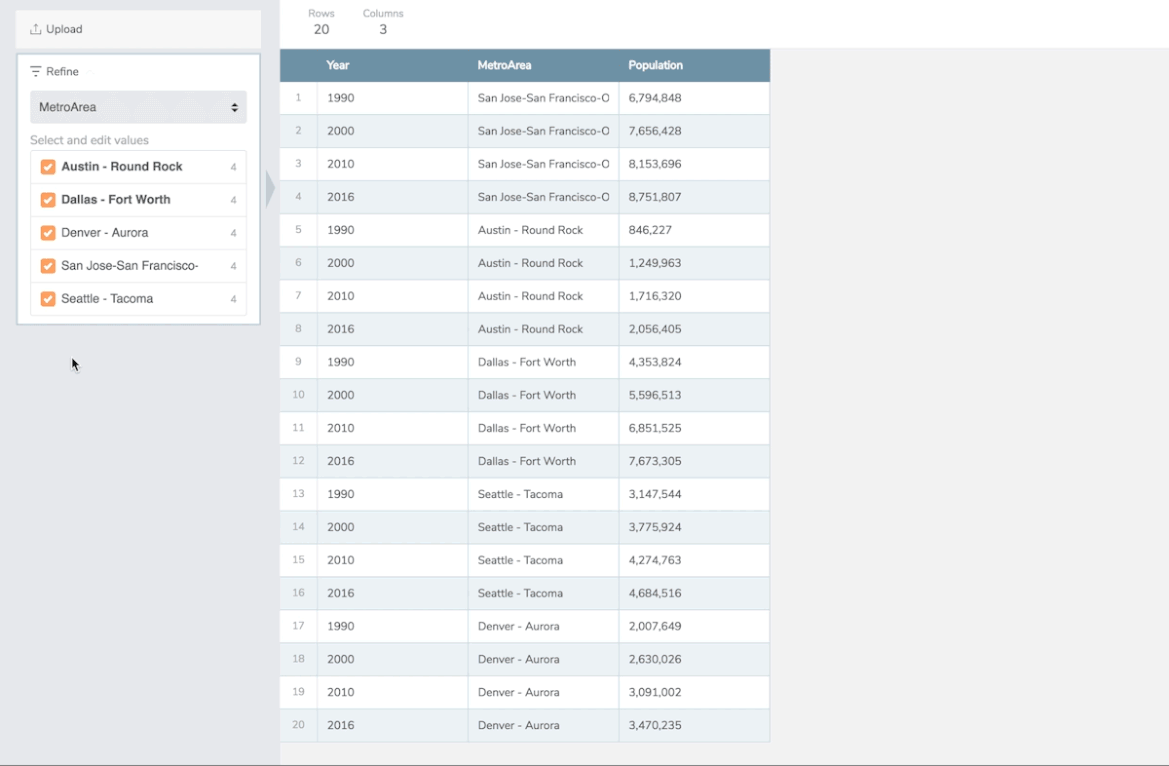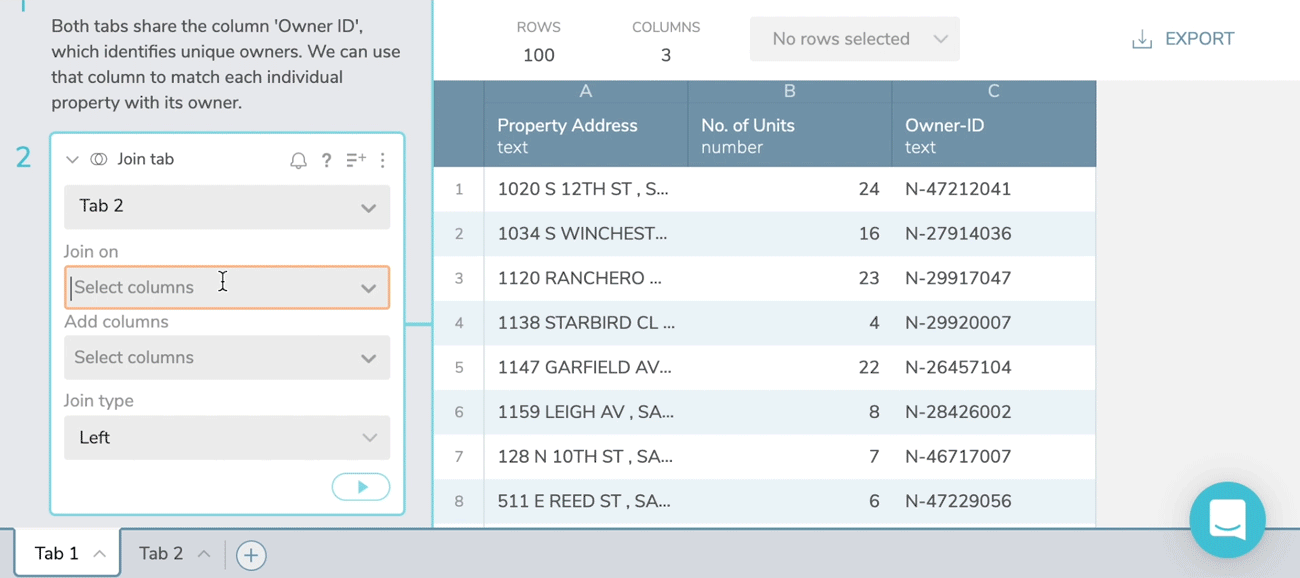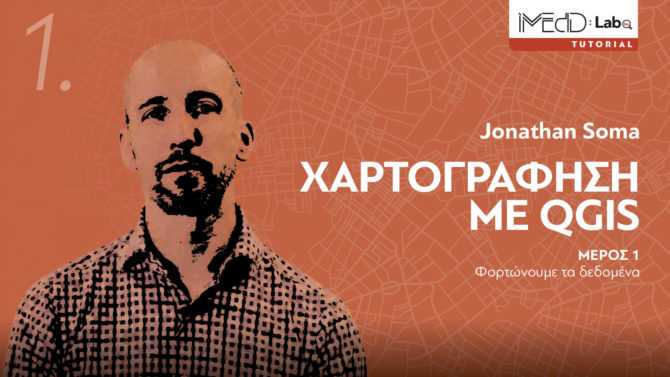The workbench platform was launched by Columbia University, New York. With the support of iMEdD and in collaboration with the Laboratory of New Technologies of the National and Kapodistrian University of Athens, the platform has now been introduced to Greece.
Workbench is an “open source” platform that supports all stages of data journalism: from receiving and clearing data, to analyzing, visualizing and sharing it with other users or journalists. And all this without writing a single line of code. Now, Workbench is also available in Greek. Below we shall take you through some of Workbench’s basic functions.

Public data collection & analysis – Extract from Twitter
Workbench contains embedded links to popular data research sources, such as the American Community Survey, the Library of Congress, Wikipedia, or Twitter, and public data can be imported from almost any source online. For example, by creating a workflow that monitors Twitter, users can access and analyze a user’s tweets (the Twitter API will only return the first 3,200 tweets), go through a list of users, or look for particular keywords and hashtags.
Using the Twitter API filters, the user is given a wide variety of options. For instance, they can select tweets in a specific language, remove retweets or replies, view tweets from a specific country, or find tweets that do not contain any photos or videos.
In fact, using the automatic update feature, the collection of data (tweets in this case) can be repeated at predetermined intervals.
The data can be visualized in various ways or analyzed in terms of the sentiment it expresses (sentiment analysis), provided it is in English.
Cleaning, correcting and processing datasets
One of the biggest problems with large datasets is mass data correction and standardization in commonly accepted formats. With Workbench you can find and correct spelling and typographical errors in a matter of seconds but also formulate your dataset so as to visualize it.

I’m really excited Workbench is now available in Greek. For quite some time now, data journalism has been considered as an international profession, but not everyone is given the same opportunity to learn.This translation will allow Greek students to learn the basics of data analysis and story reporting at an incredible speed.
Jonathan Stray, ιδρυτής του Workbench
At the same time, by clicking on a button, you can delete empty columns or data cells and edit them.

You can just as easily merge different datasets using the Join Tab option. For example, if you have two datasets with shared columns (e.g. Name) and you want to merge them so as to include them in your final set, you can easily do so. Also, you can easily adjust prices based on inflation or the value of a share or a currency by joining two tables.

Collaborate with others and promote your work
Workbench is designed to facilitate collaboration and to help you share your work and make it publicly available to other researchers. At the same time, your work can also serve as reference for future research. By the same token, you can access and add elements to other researchers’ “workflows” by conducting new analyses and visualizations.
Introduction to Data Journalism
Workbench now offers its first introductory course in data analysis and visualization in Greek. The course will teach you how to answer questions using data in a transparent way, without having to write code.

You will learn how to filter or group data, create graphs, fix common data formatting problems, and merge different datasets. You will also learn how to calculate per capita percentages, percentage changes and indexation.
The localization of the Workbench platform in Greek was realized as part of Cycle 1 of iMEdD’s Incubator.The Greek team that undertook the project consists of: Christos Gavalas, Konstantinos Mourlas, *Nikos Pitsiladis, Sotiris Sideris, Katerina Sotirakou and Thanasis Tromboukis.The technical implementation of the project was carried out by Radical Elements.

